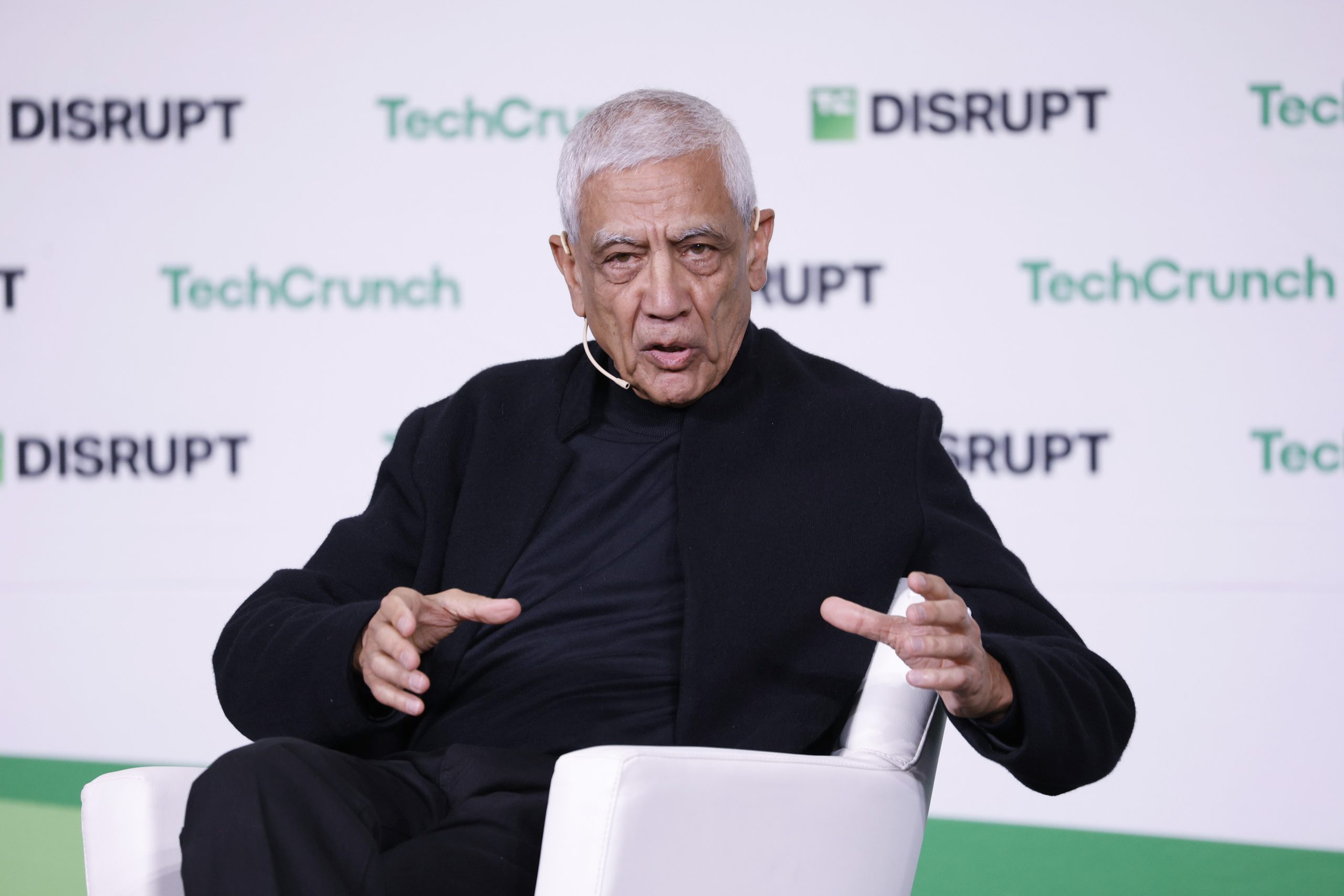
A pioneering venture capitalist, Vinod Khosla, recently unveiled a groundbreaking proposal that challenges conventional economic thought, suggesting a radical approach to societal wealth distribution in the impending age of Artificial General Intelligence (AGI). Speaking at the TechCrunch Disrupt 2025 conference, the influential founder of Khosla Ventures advocated for the United States government to acquire a 10% ownership stake in all publicly traded corporations. The intent, he explained, is to establish a national pool of corporate wealth, the proceeds of which could then be systematically redistributed to the general populace, thereby mitigating the anticipated economic upheaval wrought by advanced AI.
The Looming Shadow of AGI and Its Economic Implications
Khosla’s audacious vision stems from a deep concern regarding the transformative, potentially disruptive, power of Artificial General Intelligence. Unlike narrow AI, which excels at specific tasks, AGI refers to hypothetical intelligent agents that can understand, learn, and apply intelligence across a broad range of problems, much like a human. Experts widely anticipate that the advent of AGI could usher in an era of unprecedented productivity and innovation, but also one of profound job displacement. As AI systems become capable of performing complex cognitive and manual tasks across virtually every sector—from accounting and medicine to engineering and creative arts—the traditional human labor market is expected to undergo immense pressure.
This projected shift fuels anxieties about exacerbating wealth inequality and fragmenting social cohesion. Khosla emphasized that while the long-term benefits of AGI could be immense, the transition period demands proactive and robust policy responses to ensure that the gains are broadly shared, preventing a scenario where a technologically advanced few disproportionately benefit while large segments of the population face economic marginalization. His timeline suggests that by 2035, the global economy could enter a "hugely, hugely deflationary" phase, necessitating mechanisms to sustain consumer demand and provide a safety net for a workforce increasingly augmented or replaced by AI.
Historical Echoes of State Intervention and Social Dividends
While Khosla’s proposal for a universal government equity stake in private industry might appear unprecedented in modern American capitalism, the concept of collective wealth distribution and state involvement in economic affairs has historical precedents, albeit in different forms. Throughout history, various societies have grappled with how to allocate resources and manage economic shifts. The idea of a "social dividend" or "citizen’s dividend" has roots in utopian socialist thought and has been championed by economists across the political spectrum, from Thomas Paine’s advocacy for a national fund derived from land rents to later calls for basic income.
A notable contemporary example is the Alaska Permanent Fund, established in 1976, which distributes a portion of the state’s oil revenues to its residents annually. While different in its revenue source (natural resources rather than corporate equity), it embodies the principle of collective ownership leading to direct citizen dividends. Globally, sovereign wealth funds, often capitalized by resource exports or budget surpluses, invest in various assets, including public and private equities, though their primary purpose is usually national savings or strategic investment rather than direct citizen redistribution.
More directly, the concept of government taking equity stakes has emerged in moments of national crisis or strategic imperative. During World War II, governments heavily directed industrial production, and in more recent financial crises, like the 2008 bailout of the auto industry or major banks, the U.S. government acquired temporary equity stakes in private companies as a condition of emergency aid. These interventions, however, were typically reactive, sector-specific, and aimed at stabilization, with the intent of divestment once the crisis abated. Khosla’s proposal stands apart by suggesting a proactive, universal, and permanent equity stake as a foundational economic restructuring for a future defined by AGI.
Deconstructing the "Intel Inspiration"
Khosla cited President Donald Trump’s decision for the U.S. government to take a 10% stake in Intel as the genesis of his idea, stating, "When Trump bought 10% of Intel, I wondered if it wasn’t a good idea." This reference likely alludes to discussions surrounding the U.S. CHIPS and Science Act of 2022, a bipartisan initiative aimed at boosting domestic semiconductor manufacturing. The Commerce Department, which administers the CHIPS Act, outlined conditions for significant federal funding, including provisions for the government to take equity warrants or options in companies receiving over $150 million in direct funding. These equity stakes are not intended as a broad wealth redistribution mechanism but rather as a way for taxpayers to potentially share in the upside of companies receiving substantial public subsidies, offering a return on investment for the federal outlay.
Khosla’s interpretation, therefore, appears to extend the principle of government equity involvement—even if for different reasons—to a much broader, systemic application aimed at addressing AGI’s impact. His argument posits that if such mechanisms can be considered for strategic industries, a similar logic could be applied across the entire public market to prepare for a societal transformation of unprecedented scale.
Economic Repercussions: A Deep Dive
Implementing Khosla’s proposal would spark intense debate across economic and political spectra. Advocates would highlight its potential to create a powerful social safety net, ensuring a baseline standard of living for all citizens, irrespective of their employment status in an AI-driven economy. Such a universal dividend could stabilize consumer demand, inject liquidity into local economies, and significantly reduce poverty and income inequality. It could also foster a sense of collective ownership in the nation’s economic success, theoretically strengthening social cohesion.
However, the economic challenges are substantial. Critics would argue that a mandatory 10% government stake could be perceived as a form of partial nationalization, potentially deterring private investment and innovation. Concerns about market distortion, the impact on stock valuations, and the complexity of managing such a vast portfolio would be paramount. Who would oversee this national pool? How would voting rights be exercised? Would political influence inevitably creep into corporate governance, potentially undermining efficiency and market-driven decision-making? The sheer logistics of acquiring, managing, and distributing dividends from hundreds or thousands of public companies would be an administrative behemoth.
Khosla’s prediction of a "hugely, hugely deflationary economy" by 2035 also warrants careful consideration. If AGI leads to near-zero marginal costs of production for many goods and services, prices could indeed plummet. While beneficial for consumers, sustained deflation can be economically detrimental, leading to reduced corporate profits, delayed consumption, and increased real debt burdens, potentially stifling economic growth. A universal dividend, in this context, could act as a critical counter-deflationary measure, ensuring a baseline income stream that helps maintain purchasing power and economic activity.
Social Transformation and the Future of Work
Beyond economics, Khosla’s vision directly confronts the societal implications of AI-driven job displacement. His assertion that jobs like mounting tires on an assembly line or farming represent "servitude to survival" rather than inherently human endeavors speaks to a profound philosophical shift. He envisions a future where humans are liberated from repetitive, dangerous, or monotonous tasks, freeing them to pursue creative, intellectual, caregiving, or entrepreneurial endeavors.
A universal dividend, funded by corporate equity, could facilitate this transition by decoupling income from traditional employment. This could unlock human potential, allowing individuals to pursue education, artistic expression, community service, or groundbreaking research without the constant pressure of financial precarity. It would necessitate a cultural re-evaluation of "work" and "value," moving beyond a narrow definition tied solely to market-based employment. While this promises liberation for many, it also presents challenges in managing a society where traditional work roles diminish. The psychological impact of not "needing" to work, the potential for purpose vacuums, and the societal structures required to support a more leisure- or purpose-driven populace are complex issues that would need addressing.
Navigating the Path Forward: Challenges and Debates
Khosla acknowledged that his proposal would draw critique, emphasizing its necessity for social cohesion in the face of AGI’s disruption. The idea represents a significant departure from prevailing capitalist models and would ignite fierce debates over property rights, government’s role in the economy, and the very definition of a just society.
While other AI leaders, like Sam Altman of OpenAI, have supported universal basic income (UBI) proposals as a response to AI, Khosla’s method of funding — a direct, mandatory equity stake — distinguishes his approach. It bypasses taxation as the primary funding mechanism, instead proposing a form of collective ownership in the productive assets of the nation.
The political feasibility of such a radical plan in the United States remains highly questionable, given entrenched ideologies regarding free markets and limited government intervention. However, as the capabilities of AGI continue to advance and its potential societal impacts become clearer, policymakers and thought leaders may find themselves increasingly compelled to explore unconventional solutions. Khosla’s bold proposition serves as a stark reminder that preparing for the AGI era might require not just technological innovation, but also a fundamental re-evaluation of our economic and social contracts. It forces a critical conversation about how humanity can collectively harness the abundance created by AI, ensuring a future that benefits all, rather than just a privileged few.







